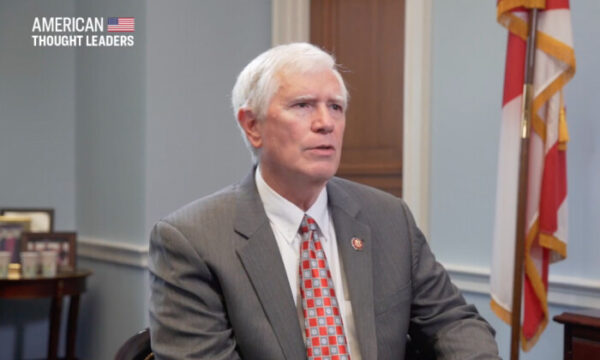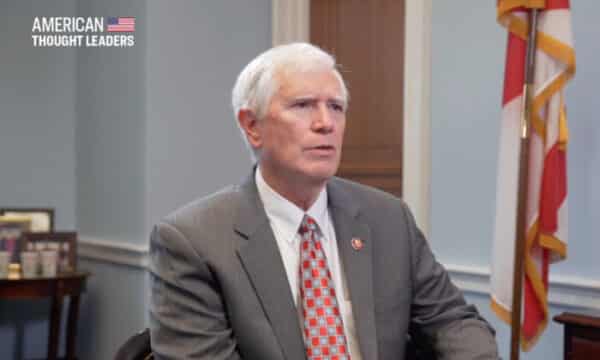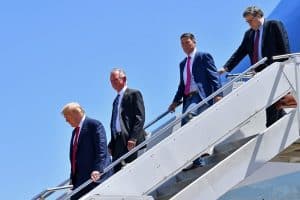Rep. Andy Biggs (R-Ariz.) said he will likely join Rep. Mo Brooks (R-Ala.) in challenging the Electoral College votes for certain states when they are counted on Jan. 6 in a sign that a growing number of Congress members will do so.
“Right now,” the conservative lawmaker said in an interview, “I’m leaning heavily into supporting that plan because we’ve seen so many allegations.”
During a Senate Homeland Security panel hearing that featured testimony alleging voter fraud and irregularities, Sen. Rand Paul (R-Ky.) said he believed there was rampant fraud during the Nov. 3 presidential election. Paul also said he may challenge the Electoral College count.
Biggs told Newsmax that he agreed with Paul’s assessment during the hearing.
“That’s important when you consider if you’re gonna object,” he said, noting that some Democratic members of Congress tried to object to electors for President Donald Trump after he won in 2016.
“Don’t ever forget that in 2017 that’s exactly what Democrats did when they objected to the sitting of President Trump’s electors, and they did it in 2005, so this is not without precedent, what [Brooks’] suggested, and I’m with him on that because there’s so much fraud out there, we actually need to make the point,” Biggs said.
Sen.-elect Tommy Tuberville (R-Ala.) also suggested that he will possibly challenge the Electoral College vote on Jan. 6, coming just three days after he is sworn in as a senator. “I’m gonna tell you: Don’t give up on him,” Tuberville, the former coach of Auburn University’s football program, said of Trump. “Don’t give up on him.”
“You’ll see what’s coming,” he said this week in response to questions about the challenge. “You’ve been reading about in the House. We’re going to have to do it in the Senate.”
And Sen. Kelly Loeffler (R-Ga.), who is facing a reelection challenge during the Jan. 5 runoff election, told the Atlanta Journal-Constitution: “January 6 is a long way out, and there’s a lot to play out between now and then.”

Congressman Mo Brooks (R-Ala.) in an interview with “American Thought Leaders.” (The Epoch Times)
The process of challenging electors requires one House representative and one senator. Then, the two chambers of Congress would have to meet separately to vote and debate any disputes.
Sen. John Thune (R-S.D.), the Senate Majority Whip, told reporters that he hopes Tuberville or other senators don’t follow Brooks’ lead.
“I think it’s time, like I said before, to bond,” Thune told reporters. “And I know there probably is our members who still have concerns about the election, integrity of the election. But the fact of the matter is, that’s been litigated over and over.”
Thune added that “it’s time to be done with this, and I would hope that we wouldn’t have members of the Senate, who would decide that that makes sense. I don’t think it’s a good decision right now. And I don’t think it’s good for the country.”
But during the Wednesday hearing, Paul and former Clinton-era special prosecutor Ken Starr said that of the lawsuits regarding election fraud and irregularities, the vast majority of those cases were not heard on merit—but rather weren’t heard by judges due to procedural hurdles.
“The courts have not decided the facts,” Paul said at Wednesday’s hearing. “The courts never looked at the facts. The courts don’t like elections, and they stayed out of it by finding an excuse.”



